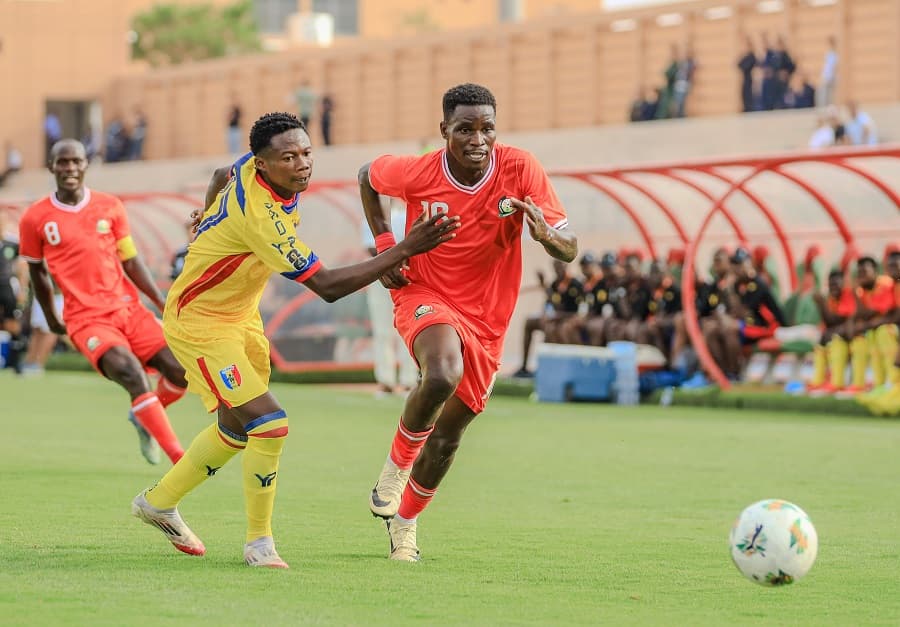We're loading the full news article for you. This includes the article content, images, author information, and related articles.
The Harambee Stars' reliance on foreign-born players is facing renewed questions following a largely underwhelming performance in the recent 2026 FIFA World Cup qualifiers, prompting a re-evaluation of the national team's talent integration strategy.

The Harambee Stars' recent 2026 FIFA World Cup qualifying campaign has cast a spotlight on the effectiveness of integrating foreign-born players into the national squad. Despite hopes that players developed in European academies would elevate Kenya's performance, the results have been mixed, leading to a critical assessment by national team coaches and football enthusiasts.
Out of 49 players who featured in at least one of Kenya's ten World Cup qualifying matches, eight were either born or raised abroad. Among these, only William Lenkupae, who joined Finnish top-flight club VPS in July 2025, emerged as a consistent performer, making six appearances and scoring once on his debut against The Gambia. His goal was the sole contribution from the foreign-born contingent during the qualifiers, highlighting the limited impact of the other diaspora players.
The strategy of incorporating foreign-born players is not new to African football. Several African nations, particularly in North and West Africa, have successfully leveraged their diaspora to strengthen national teams, with a record number of foreign-born players participating in the 2023 Africa Cup of Nations. FIFA rule changes, lobbied for by African nations, have made it easier for players to switch national team allegiances, provided they meet specific criteria, such as having played no more than three competitive matches at senior level before turning 21.
For Kenya, the Football Kenya Federation (FKF) rules state that a foreign player is ineligible to represent Kenya unless they have acquired permanent residence status in line with the Immigration Act and comply with FIFA statutes on eligibility. Harambee Stars coach Engin Firat has often advocated for calling up players of mixed nationality, citing a perceived lack of quality in local leagues.
Despite the coaching staff's interest, the process of integrating foreign-born players has been hampered by bureaucratic hurdles. Coach Firat has expressed frustration over the long-drawn process of acquiring necessary documentation, including Kenyan passports, for these players. This has led to several players missing out on crucial matches due to paperwork complications. For instance, defenders Zack Vyner and Tobias Knost were unavailable for the June 2024 FIFA World Cup qualifiers due to such issues.
The eligibility criteria for players with Kenyan roots include being born in Kenya, having a biological parent or grandparent born in Kenya, or having lived continuously for at least five years in Kenya after reaching the age of 18. However, even with these guidelines, the practicalities of changing nationality and securing Kenyan passports remain complex.
While some coaches believe foreign-born players can inject technical quality, discipline, and tactical awareness, their inability to consistently secure starting roles under coach Benni McCarthy suggests a disparity in quality compared to their local counterparts. Critics argue that the influx of foreign players could hinder the development of local talent. However, proponents point to successful examples like Divock Origi, a Kenyan-Belgian who has had an exceptional career in Europe, winning major titles with Liverpool.
A key uncertainty remains the consistent quality of foreign-born players available to Harambee Stars. Unlike some North and West African nations with a large pool of high-calibre diaspora players, Kenya has yet to find a dependable crop of foreign-born talent consistently playing in Europe's top leagues. Most of the foreign-born players called up to the Harambee Stars do not play in Europe's top five leagues, raising questions about their overall impact.
The Football Kenya Federation (FKF) continues to engage with FIFA on talent development schemes, as evidenced by a recent three-day working visit with a FIFA Talent Development Scheme expert in Nairobi from Monday, October 13, to Wednesday, October 15, 2025. This initiative aims to review and align Kenya's player development pathways, which could influence future strategies for integrating both local and diaspora talent.
Moving forward, observers will be keen to see if the FKF and the Harambee Stars technical bench will refine their approach to scouting and integrating foreign-born players. This includes streamlining the passport acquisition process and potentially focusing on a more targeted selection of players who can genuinely enhance the team's performance. The balance between nurturing local talent and leveraging the diaspora remains a critical consideration for the future of Kenyan football.
Keep the conversation in one place—threads here stay linked to the story and in the forums.
Sign in to start a discussion
Start a conversation about this story and keep it linked here.
Other hot threads
E-sports and Gaming Community in Kenya
Active 9 months ago
The Role of Technology in Modern Agriculture (AgriTech)
Active 9 months ago
Popular Recreational Activities Across Counties
Active 9 months ago
Investing in Youth Sports Development Programs
Active 9 months ago